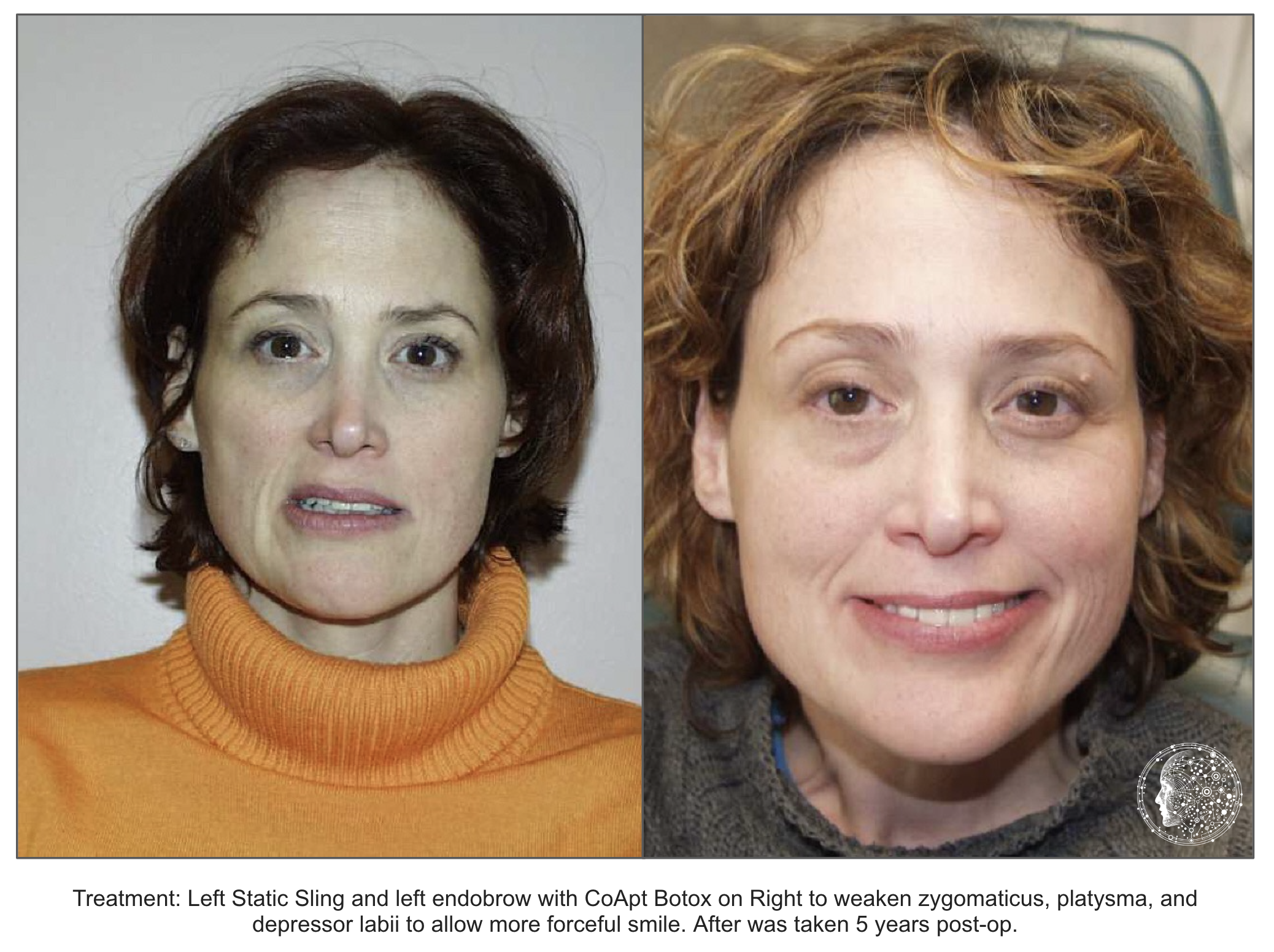FEATURED PROCEDURES
Step into a world of transformative care at our clinic, where we invite you to explore our three featured procedures: the Static Sling, Eyelid Spring, and Non Surgical Botox. These cutting-edge treatments are designed to address facial paralysis with precision and effectiveness, restoring symmetry, improving function, and enhancing your natural appearance. We are dedicated to your happiness and progress, offering a range of services tailored to support and assist our patients in overcoming their facial paralysis concerns. Your well-being is our top priority, and we look forward to guiding you on your journey towards renewed confidence and vitality.

OUR PATIENTS
Our patients experience both cosmetic and functional challenges due to facial nerve paralysis. Cosmetic concerns involve facial deformities resembling a stroke, affecting how they are perceived and treated. Functional issues include drooling, speech difficulties, eating challenges, nasal breathing problems, and various eye-related issues. Paralysis can result from various causes, with common ones being Bell’s palsy and acoustic neuroma.
SCHEDULE A CONSULTATION




